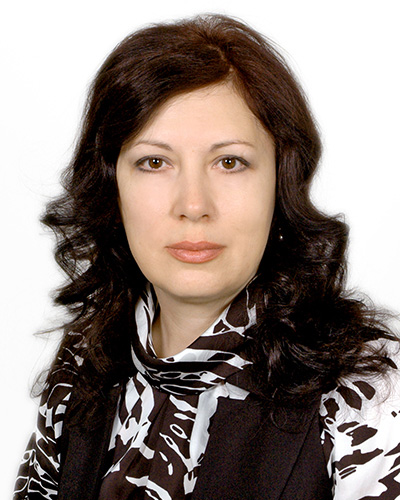|
 UDC 338.242.002.8:628.477:330.837; JEL O13, Q21, Q24, R14
UDC 338.242.002.8:628.477:330.837; JEL O13, Q21, Q24, R14
Kolodiychuk, I. (2022). Instytutsiynyy komponent systemy upravlinnya vidkhodamy [Institutional component of the waste management system]. In Sotsial'no-ekonomichni problemy suchasnoho periodu Ukrayiny [Socio-Economic Problems of the Modern Period of Ukraine]: Vol. 156 (4) (pp. 29-33). DOI: https://doi.org/10.36818/2071-4653-2022-4-5. [in Ukrainian].
Sources: 6
Authors
Kolodiychuk Iryna AnatoliyivnaDoctor of Economics, Senior Researcher
Leading Researcher of the Department of regional ecological policy and environmental management of the Dolishniy Institute of Regional Research of NAS of Ukraine
Contacts:  ira1166@ukr.net, ira1166@ukr.net,  +38(067)81-17-182 +38(067)81-17-182
Webpages:           
ResumeThe article argues that the term «management» is also used to denote the characteristics of organizational and administrative activities of executive authorities and local self-government and is defined as the process of planning, organization, motivation, and control necessary to formulate and achieve the system's goals. In this context, the following goals of waste management are specified: implementation of legislation, control over compliance with environmental safety requirements, ensuring the implementation of effective and comprehensive measures in the context of compliance with the hierarchy of waste, rational use of natural resources, achieving the coordination of state and public entities’ actions in waste management. The relevance of this issue for Ukraine is determined both by its integration into European structures and by the need to improve the waste management system, in particular at the regional level. The purpose of the article is to study the current state of domestic legislation on the powers of government entities in waste management and present the institutional component of regional waste management systems through the prism of an integrated approach to its functioning. The analysis of the features of the current institutional structure of waste management and the duties and powers of system participants defined by the legislation at the national and local levels is carried out. The entities in the field of waste management involved in public administration are structured. Attention is focused on entities that do not have powers but are endowed with responsibilities and rights in the waste management system. We are convinced that the inconsistency of hierarchical communications causes dissonance in the actions of system elements. Therefore, it is important to organize information interrelation, which in form and content will allow us to make coordinated management decisions at different levels in time and provide a synergistic effect. The basic unit in the waste management system is reasoned. It is a region that has sufficient managerial levers. The hierarchical structure of the Regional Waste Management System is presented. The competent authorities that make decisions and perform local control functions in waste management are considered, in particular the powers of local self-government bodies. The features of the waste management system in the regions of Ukraine are determined.
Keywords:Waste Management System, region, institutional structures, entities in waste management, competencies of structural divisions, powers of government bodies
References- Mishchenko, V. S. (2011). Udoskonalennya systemy klasyfikatsiyi vidkhodiv i zasady ukrayins’koho LIST OF WASTES [Improving the waste classification system and the principles of the Ukrainian LIST OF WASTES]. Ekologiya i promyshlennost’ – Ecology and Industry, 107-111. [in Ukrainian].
- Ihnatenko, O. P. (2014). Investytsiyne znachennya pobutovykh vidkhodiv u sferi blahoustroyu naselenykh punktiv [Investment value of household waste in the field of improvement of settlements]. Investytsiyi: praktyka ta dosvid – Investments: practice and experience, 11, 139-143. [in Ukrainian].
- Samoylik, M. S. (2014). Ekonomichna model’ rozvytku sfery povodzhennya z tverdymy vidkhodamy rehionu z urakhuvannyam ekolohichnykh faktoriv [Economic model for the development of solid waste management in the region, taking into account environmental factors]. Visnyk Poltavs’koyi derzhavnoyi ahrarnoyi akademiyi – Bulletin of the Poltava State Agrarian Academy, 1, 82-87. [in Ukrainian].
- Khyzhnyakova, N. O. (2003). Obgruntuvannya proektiv kompleksnoho pereroblennya pobutovykh vidkhodiv [Substantiation of projects of complex processing of household waste]. Visnyk Natsional'noho universytetu «L'vivs'ka politekhnika»: Lohistyka – Bulletin of the Lviv Polytechnic National University: Logistics, 472, 522-526. [in Ukrainian].
- Vyhovska, H. P. (1999). Kontseptual’ni zasady stvorennya normatyvno-pravovoyi ta metodychnoyi bazy u sferi povodzhennya z vidkhodamy [Conceptual bases of creation of normative-legal and methodical base in the field of waste management]. In Utilizatsiya otkhodov. Organizatsiya i kontrol’ poligonov [Recycling. Organization and control of landfills]: collection of scientific articles (pp. 16-34). Odesa: Odesa Center for Scientific, Technical and Economic Information. [in Ukrainian].
- Pro vidkhody [On Waste] (1998). Law of Ukraine, adopted on 1998, Mar 5, 187/98-VR. Legislation of Ukraine: Website. Retrieved from http://zakon2.rada.gov.ua/laws/show/187/98-%D0% B2%D1%80 [in Ukrainian].
|